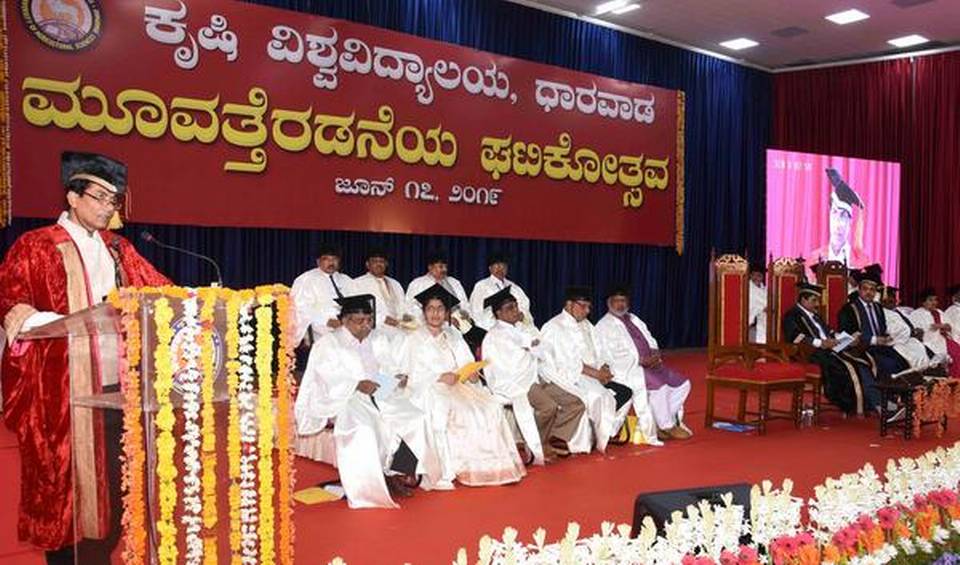June 18, 2019
Here are the highlights of the convocation address by ICAR director general, Dr. Trilochan Mohapatra at University of Agriculture Sciences, Dharwad, Karnataka – The Hindu
As India has achieved self-sufficiency in food production, the Union government has shifted the focus to empowering farmers economically by enhancing their incomes, said Indian Council of Agriculture Research (ICAR) director-general Trilochan Mohapatra on Monday.
Delivering the convocation address at the 32nd annual convocation of the University of Agricultural Sciences, Dharwad (UAS-D) here, Dr. Mohapatra said that successive governments have been pressing for high food production to meet the demand in the domestic market. Now, the nation produces over 280 million tonnes of foodgrains annually, so the time is ripe to shift the focus on to enhancing the income of farmers so that they carry forward their occupation and improve their living standards.
After the Green, Blue, White and Yellow revolutions, agriculture science in India is progressing well, he said. When compared to the agriculture scenario in 1950, India’s foodgrain production has increased six times and has hit nearly 300 million tonnes, he said. Last year, India produced a record 100 million tonnes of wheat and the land covered under wheat production was increased by 30 million hectares. Pulses and millet revolution too is progressing and high production is needed to mitigate protein deficiency, Dr. Mohapatra said. Last year, nine million tonnes of pulses and the same quantity of millets were grown, with Karnataka contributing richly to this.
“The sugar demand in the country is 35 million tonnes, and in the past couple of years, India stopped importing sugar as the demand has been met by our own farmers. There is an increase of 12% in sugar production, but this year because of conflicting monsoon, there might be a dip in sugar production,” he said. He added that horticulture production in India has touched 315 million tonnes, while in milk production the country retains the first place globally. Today, 176 million tonnes of milk is produced, and many milk products exported to other countries.
Dr. Mohapatra said such achievements were possible because of the intervention of innovative technologies in agriculture.
Income challenge
After hitting the desired goal in food production, the major issue facing Indian agriculture is doubling the income of farmers. For this, he said, the Centre has been consulting the State governments to promote integrated farming. He added that Karnataka can take a leading role by bringing all agriculture-related universities under one roof. This would enable farmers to take up integrated agriculture (agriculture, horticulture, fisheries and dairy) and enhance their income, he said.
Today, climate change, soil degradation and change in rainfall patterns have compounded the problems in the agriculture sector, he said. According to expert reports, 12 nutrients are missing in the soil. Water is another major issue. Dr. Mohapatra said that only 30% of rainwater is tapped and utilised for agriculture and drinking. The remaining 70% flows into the sea. “Under no circumstances the rainwater should flow into the sea and increase its volume. The government has embarked upon a mega rainwater harvesting scheme that envisages rainwater harvesting units coming up in every hobli. Stored rainwater can be used during off-season to raise crops and take care of livestock,” he said.
Agriculture Minister N.H. Shivashankar Reddy gave away the gold medals to meritorious students.
Original post on The Hindu

